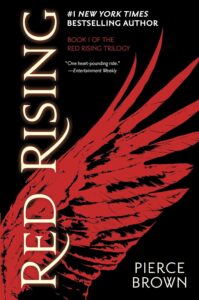Summary The Things We Cannot Say begins in1942 with Europe still engulfed in the never-ending conflict. A young woman exchanges vows during her wedding, just beyond the tents of the camp she calls home for refugees. The choice she...
Summary
The Things We Cannot Say begins in1942 with Europe still engulfed in the never-ending conflict. A young woman exchanges vows during her wedding, just beyond the tents of the camp she calls home for refugees. The choice she makes will change her fate…. it’s a deception that won’t come to light for another century.
Alina Dziak had known since she was nine years old that she would wed Tomasz, her best friend. Now fifteen and engaged, Alina ignores news of Nazi soldiers on the Polish border, thinking her neighbors will never harm them. Instead, she dreams of the day Tomasz comes back from his Warsaw college to tie the knot.
But as the Nazi occupation creeps in, harsh injustice after brutal injustice, Alina’s small rural hamlet and its residents begin to live in terror and hatred.
Then Tomasz vanishes, the fabric of their lives gradually torn apart. Now, instead of counting the seconds between her beloved’s visits, Alina counts the moments between hope and sorrow as she waits for Tomasz’s message and stays out of the soldiers’ way on her parents’ farm. But for now, it’s better than grief, even deafening quiet.
Review
This lovely novel had me in tears after just one chapter. Just one chapter. That’s where I have to start because I want to let you all know how profoundly this book changed me.
Because I was moved to tears more times than I could count while reading that first chapter, and because it hit a spot deep inside of me that I don’t frequently share with the outside world. That fragment within me is Jackson, my own son.
He is the lone boy and the baby in our family of five. His sisters are his greatest supporters and defenders; they adore him dearly. When this kid smiles or laughs, he has the ability to light up a room. It’s a sound of magic. One of my greatest blessings, he is innocent and pure.
Who would have thought that a four-year-old boy could impart to me some of the most valuable life lessons? It would be an enormous understatement to suggest that I could relate to this because he, like Alice’s son Eddie, is autistic.
This smoothly transitions between the two timelines, alternating between Alina in 1940s Poland and Alice in the present. Alina’s tale is so heartwarming, the atrocities of World War II never cease to astound me, and Rimmer recounted a moving journey with such grace, humility, and respect.
Even though I thought her character and tale were fantastic, my heart is still with Alice and poor Eddie. Although Rimmer doesn’t appear to have personal experience with ASD based on the author’s statement at the conclusion of the book, given how well she described her experiences as a special needs parent, I would have assumed that she was the parent of an autistic child.
Alice is a lovely, messy, realistic heroine who made me feel seen. Her sentiments of shame, doubt, and insecurity are exactly the same sensations that overwhelm me on a daily basis. Her battles are my challenges. Before reading this, I had no idea how much I needed to be noticed, but it really meant a lot to me. I’m so appreciative—I truly can’t put it into words.
I have so much to say about this book that I could rave about it for hours, but I’ll save you all and just say that if you choose to read just one book from my hundreds of recommendations, please make it this one.
Not only is it a lovely tale of love, family, and history, but it also provides some much-needed clarity on a subject close to my heart. Most people, including me, find it difficult to understand ASD, but this short book made it much more approachable. In addition, the author is a gifted writer, and I loved how well she combined the past and present.
The Things We Cannot Say Buying Options
More Historical Books
The Bridgertons: Happily Ever After The Hotel Nantucket by Elin Hilderbrand (2022): A Captivating Tale of Love, Loss, and Ghosts The Lost Apothecary by Sarah Penner













